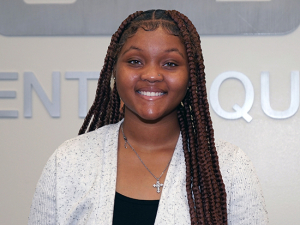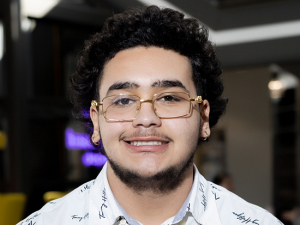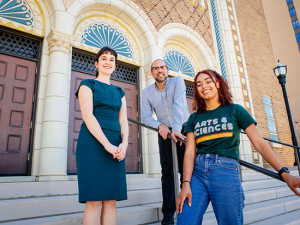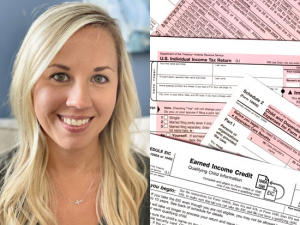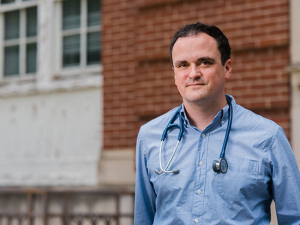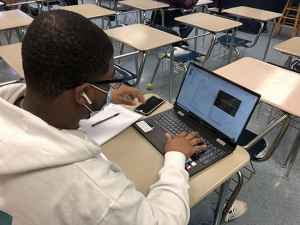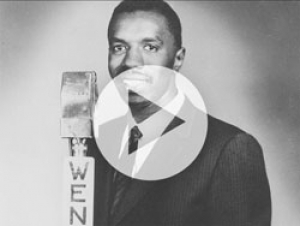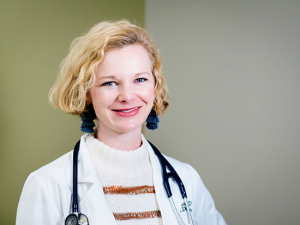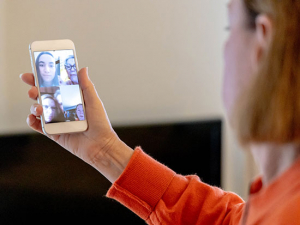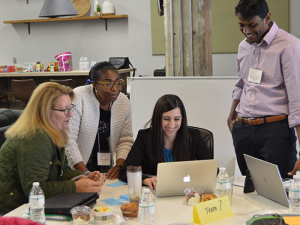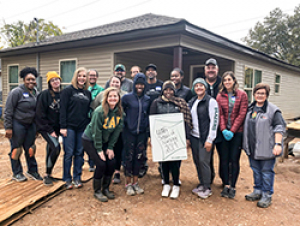 Rebecca Kennedy, Ph.D., assistant vice president for Student Health and Wellbeing at UAB, is serving as co-chair of the International Health Promoting Campuses Network. Kennedy is now preparing for the network's June 2025 conference in Limerick, Ireland (see below for details on the conference), In December 2020, President Ray Watts, M.D., signed the Okanagan Charter, making UAB the first university in the United States to adopt the charter and become an internationally recognized Health Promoting University, or HPU. The charter was developed in 2015 by a group of health promotion experts from dozens of countries worldwide, outlining best practices that higher-education institutions can use to promote health and wellbeing in their own communities and beyond.
Rebecca Kennedy, Ph.D., assistant vice president for Student Health and Wellbeing at UAB, is serving as co-chair of the International Health Promoting Campuses Network. Kennedy is now preparing for the network's June 2025 conference in Limerick, Ireland (see below for details on the conference), In December 2020, President Ray Watts, M.D., signed the Okanagan Charter, making UAB the first university in the United States to adopt the charter and become an internationally recognized Health Promoting University, or HPU. The charter was developed in 2015 by a group of health promotion experts from dozens of countries worldwide, outlining best practices that higher-education institutions can use to promote health and wellbeing in their own communities and beyond.
“Adopting the charter aligns who we have always been as an institution with an internationally known framework and network,” Watts said at the time. He also predicted that the move would “raise UAB’s visibility internationally, nationally and statewide for our work in health and health promotion.”
UAB's work in health and health promotion
That work includes Live HealthSmart Alabama, UAB’s inaugural Grand Challenge project; the Birmingham Health District; the Blazer Market Route; the Blazer Core Curriculum; the UAB Cares Suicide Prevention and Intervention Initiative; the UABwell Mobile App; and the First-Gen Forward Initiatives.
In September 2021, seven more U.S. campuses adopted the charter, with UAB as network chair of the US Health Promoting Campuses Network (USHPCN). Each HPU seeks to embed health into all aspects of campus from the culture to the built environment, and to lead health-promotion action and collaboration locally and globally. In the fall of 2022, UAB Student Affairs first applied the principles of the charter to the issue of student food insecurity. Working with students to understand their barriers, Student Affairs learned that transportation to inexpensive and culturally appropriate foods could help mitigate hunger. The Blazer Market Route was born to meet this need.
Facilitating student success
 As part of the Blazer Core Curriculum, students have the opportunity to engage in high-impact practices such as service learning and engage with members of the surrounding community. Photo by ANDREA MABRY | UAB Marketing and CommunicationsIn February 2023, UAB hosted the first-ever in-person summit of USHPCN, which drew 173 participants representing 57 institutions in 26 states. To date, 31 U.S. campuses have adopted the charter, and 282 campuses have joined the network. Later that year, John R. Jones III, Ph.D., vice president for Student Affairs, along with his AVPs, led an all-day pre-conference workshop at the NASPA Annual Conference on utilizing the HPU approach to facilitate student success.
As part of the Blazer Core Curriculum, students have the opportunity to engage in high-impact practices such as service learning and engage with members of the surrounding community. Photo by ANDREA MABRY | UAB Marketing and CommunicationsIn February 2023, UAB hosted the first-ever in-person summit of USHPCN, which drew 173 participants representing 57 institutions in 26 states. To date, 31 U.S. campuses have adopted the charter, and 282 campuses have joined the network. Later that year, John R. Jones III, Ph.D., vice president for Student Affairs, along with his AVPs, led an all-day pre-conference workshop at the NASPA Annual Conference on utilizing the HPU approach to facilitate student success.
The Okanagan Charter and UAB’s status as a Health Promoting University provides a helpful frame as the university adapts to the changing needs of today’s post-pandemic students and the technological whirlwinds of AI. The charter “encourages us to embed health in all we do, building thriving communities, a culture of wellbeing and a supportive campus environment,” said Rebecca Kennedy, Ph.D., assistant vice president for Student Health and Wellbeing in the UAB Division of Student Affairs. “Our leadership has really homed in on that and asked everyone here how they can contribute to those goals.”
Contributing to health and health promotion across campus
Kennedy points to several recent examples.
- Dean Maria Shirey, Ph.D., and her team at the School of Nursing are rethinking how students master clinical skills to increase success while changing the high-stress, one-or-done evaluations that can derail prospective nurses from continuing in the program.
- In the College of Arts and Sciences, Dean Kecia Thomas, Ph.D., and her staff have worked to build community and normalize help-seeking by creating “cafes” that come with free snacks, comfortable places to sit, and friendly graduate students who are able to help peers work through difficult homework issues or simply have a chat.
- In the School of Public Health, Dean Paul Erwin, M.D., DrPH (who co-chairs UAB’s President’s Wellbeing Collaborative with Kennedy), has earmarked internal grant funds so that a faculty member can develop a localized sustainability plan for the school.
- And in the School of Health Professions, Dean Andrew Butler, Ph.D., was instrumental in working with Kennedy and Student Affairs to bring the research-backed Sky Campus Happiness program to UAB.
“This is exactly the kind of settings-based change that is called for in the Okanagan Charter — breath work that increases community and decreases loneliness,” Kennedy said.
Live HealthSmart Alabama continues to innovate. In September, Alabama’s U.S. Representative Terri Sewell recognized the impact of Live HealthSmart Alabama during a meeting of the United States Committee on Ways and Means Health Subcommittee. Sewell said the initiative “is an example of the type of work this committee should be supporting.”
“We have led on the national front, and now we are leading on the international front”
Kennedy continues to serve on the steering group of the USHPCN in the role of past chair. She is also the current co-chair of the International Health Promoting Campuses Network (IHPCN) alongside co-chair Matt Dolf, Ph.D., of the University of British Columbia.
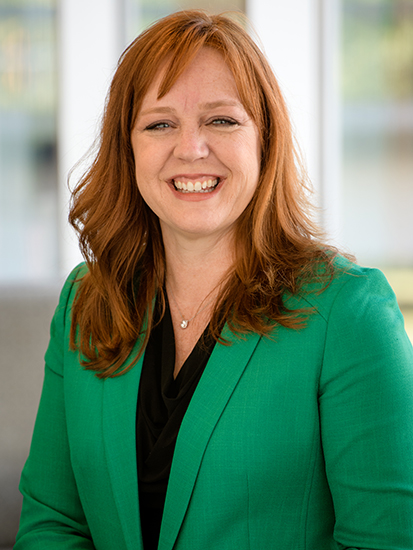 “Our people are doing incredible things,” Kennedy noted. “Any time we present, we have the opportunity to share how innovative we are at UAB, elevating our institution across the country and around the globe.”Kennedy has presented at major events in Iowa and Illinois in the last two months, teaching others about the Okanagan Charter and sharing UAB’s successes. At the 2024 U.S. Health Promoting Campuses Network summit in Albany, New York, in October, UAB had three presentations accepted. UAB was one of three case study keynotes in addition to presenting best practices for measuring the impact of health-promoting universities on the health and well-being of their students. “We have led on the national front, and now we are leading on the international front,” Kennedy said.
“Our people are doing incredible things,” Kennedy noted. “Any time we present, we have the opportunity to share how innovative we are at UAB, elevating our institution across the country and around the globe.”Kennedy has presented at major events in Iowa and Illinois in the last two months, teaching others about the Okanagan Charter and sharing UAB’s successes. At the 2024 U.S. Health Promoting Campuses Network summit in Albany, New York, in October, UAB had three presentations accepted. UAB was one of three case study keynotes in addition to presenting best practices for measuring the impact of health-promoting universities on the health and well-being of their students. “We have led on the national front, and now we are leading on the international front,” Kennedy said.
Sharing the UAB name and story
In her role as co-chair of the IHPCN, Kennedy is able to share the UAB name and story in meetings with senior government officials, faculty and practitioners from numerous other countries and regions. There are currently 16 regional networks that make up the IHPCN. In both Ireland and Canada, all universities have adopted the Okanagan Charter as a national strategy. Recently, Kennedy and Dolf met with officials from the Eastern European nation of Georgia, which is exploring a similar move. They also met with more than a dozen scholars and leaders from universities across Africa, who have recently established a network of Health Promoting Universities on that continent. Additionally, “Last fall, we began working with Dr. Vivien Huan Swee Leng in Singapore to establish a network there as well,” Kennedy added.
Kennedy is in the midst of planning for the International Health Promoting Campuses Conference in Limerick, Ireland, in June 2025, which will draw hundreds of representatives from 45 countries (and counting). Kennedy will lead an international team presenting a pre-conference on the Okanagan Charter and HPUs as well as moderate a keynote panel of participants from seven of the regional networks. “We hope to be well represented there, with a number of our most prominent initiatives submitting proposals to present,” Kennedy said.
“Our people are doing incredible things,” Kennedy noted. “Any time we present, we have the opportunity to share how innovative we are at UAB, elevating our institution across the country and around the globe.”
Learn more about UAB’s work as a Health Promoting University at uab.edu/health-promoting-university

